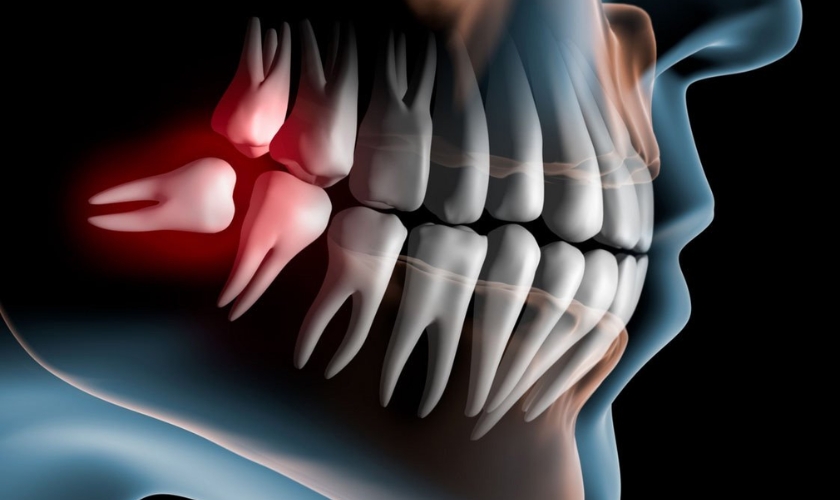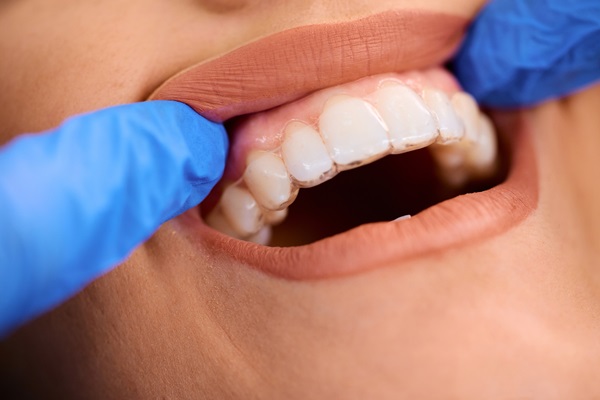4221 Vista Road, Pasadena, TX 77504
Why Do We Get Wisdom Teeth? – Here’s The Answer!

Why Do We Get Wisdom Teeth? – Here’s The Answer!
Wisdom teeth are a source of fascination, confusion, and, for many, pain. Often appearing in our late teens or early twenties, these third molars seem to cause more issues than benefits, prompting many to wonder why we even get them in the first place.
This blog dives into the fascinating history, biology, and current theories about the purpose of wisdom teeth, why they sometimes need removal, and why some people never get them at all.
Wisdom Teeth In Evolution
To understand why we get wisdom teeth, we need to travel back in time to the lives of our ancient ancestors. Early humans had much larger jaws and different dietary needs. Their diet consisted mainly of raw plants, roots, leaves, and fibrous meats, all of which required intense chewing. The extra molars provided additional surface area, helping to break down this tough, abrasive food.
In this evolutionary context, wisdom teeth served a critical purpose:
- Chewing Tough Foods: Primitive diets were hard on teeth. Since early humans didn’t have cooking techniques to soften food or dental care to preserve their teeth, their molars wore down more quickly.
- Replacing Lost Teeth: Early humans’ teeth would often wear down or be lost due to decay, leaving gaps in the jaw. Wisdom teeth could fill in as replacements, allowing for continued effective chewing and digestion.
In short, wisdom teeth were once an evolutionary adaptation for survival. However, with advancements in diet, cooking, and dental care, the need for these extra molars diminished.
Why Do They Cause Problems?
In modern times, our jaws have evolved to be smaller, thanks in part to softer diets and better dental hygiene. Over time, human jaws began to shrink, but wisdom teeth did not adapt accordingly. This mismatch has led to the numerous issues people face with wisdom teeth today, such as crowding, impaction, and infection.
Common issues related to wisdom teeth include:
Impaction
Wisdom teeth often don’t have enough room to emerge correctly, leading to impaction, where the teeth become trapped under the gums or within the jawbone. Impacted teeth can cause pain, swelling, and even infections.
Crowding
As our jaws are generally too small to accommodate all 32 teeth, wisdom teeth can push other teeth out of alignment, causing pain and disrupting years of orthodontic work.
Infections and Decay
Wisdom teeth are located at the very back of the mouth, making them harder to clean. This often leads to cavities and infections, which can spread to other teeth and gums.
The fact that so many people experience problems with their wisdom teeth suggests that they may be vestigial—meaning they are remnants of an evolutionary past that no longer serve a vital purpose.
Why Do Some People Not Have Wisdom Teeth?
Interestingly, not everyone gets wisdom teeth. Studies show that a significant portion of the population never develops one or more wisdom teeth, likely due to genetic variations. The absence of wisdom teeth has become more common as dietary and lifestyle changes reduce the need for these extra molars.
The gradual disappearance of wisdom teeth in some populations reflects a form of microevolution:
- Genetics and Ancestry: Research indicates that certain populations, especially those of East Asian descent, are more likely to be born without wisdom teeth due to specific genetic traits. This suggests that, over time, evolution has responded to changes in human needs and anatomy.
- Environmental Factors: Some anthropologists believe that dietary changes, such as the shift from raw foods to softer, cooked foods, have influenced our jaw development over generations, reducing the need for extra molars.
Process For Removing Wisdom Teeth
For many, wisdom teeth removal is a common procedure that helps prevent future complications. Dentists often recommend removal before the teeth cause problems, typically in the late teens or early twenties, when the roots are not yet fully developed, making extraction easier.
The removal process generally involves:
- X-rays and Assessment: Dentists use X-rays to check the position of the wisdom teeth and assess the risk of impaction.
- Surgical Extraction: If the teeth are impacted or there’s not enough space, a minor surgical procedure is usually required. Patients typically receive local anesthesia or sedation to minimize pain.
- Aftercare and Recovery: Following extraction, patients need time to recover, with special attention to prevent dry sockets, infection, and swelling.
The Curious Case of Wisdom Teeth
Wisdom teeth are a unique reminder of our evolutionary past. Once essential for chewing and grinding tough foods, they have become largely obsolete in modern diets. However, not everyone has wisdom teeth, and for those who do, they are often more trouble than they’re worth.
From impaction to infections, wisdom teeth can cause several issues due to a mismatch between our jaw size and the extra molars that were once advantageous.
While science has helped us understand the origins and purpose of wisdom teeth, we still face the challenges they bring. As evolution continues, wisdom teeth may become less common, leaving future generations free from the pains and complications they often cause.
Until then, wisdom teeth serve as a fascinating link to our ancestral history—a small but significant reminder of how much human life has changed over time.


